As Bill Gates once said, “reading is still the main way that I both learn new things and test my understanding”. Learning never ends, and cultivating a reading habit will stand you in good stead in the long run, helping you to become a better thinker, as well as a better leader.
We have collected 10 books on leadership and self-improvement which every CFO or person working in finance should read. These books offer valuable and interesting information on effectively carrying out your role. We have also added links to each book so you can add them straight to your reading list!
1. Leading Organisations: Ten Timeless Truths (Scott Keller)

Leading Organisations identifies the most challenging organisational issues leaders face, and then—one by one—provides the hard facts, big ideas, and exceedingly practical “how to” steps to address those issues.
This book cuts through the clutter by addressing the ten most important and timeless questions that every leader must answer to maximise their organisation’s performance.
2. First 90 Days (Michael D. Watkins)
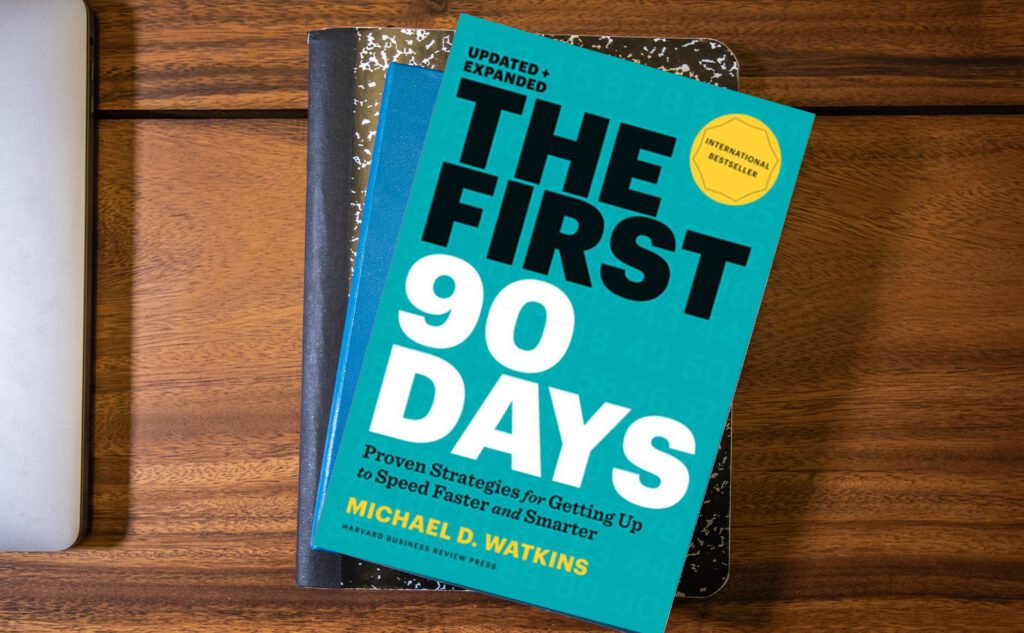
Whether challenged with taking on a startup, turning a business around, or inheriting a high-performing unit, a new leader’s success or failure is determined within the first 90 days on the job.
In this hands-on guide, Michael Watkins, a noted expert on leadership transitions, offers proven strategies for moving successfully into a new role at any point in one’s career. The First 90 Days provides a framework for transition acceleration that will help leaders diagnose their situations, craft winning transition strategies, and take charge quickly.
Practical examples illustrate how to learn about new organizations, build teams, create coalitions, secure early wins, and lay the foundation for longer-term success. In addition, Watkins provides strategies for avoiding the most common pitfalls new leaders encounter, and shows how individuals can protect themselves-emotionally as well as professionally-during what is often an intense and vulnerable period.
Concise and actionable, this is the survival guide no new leader should be without.
3. When Genius Failed: The Rise and Fall of Long Term Capital Management (Roger Lowenstein)
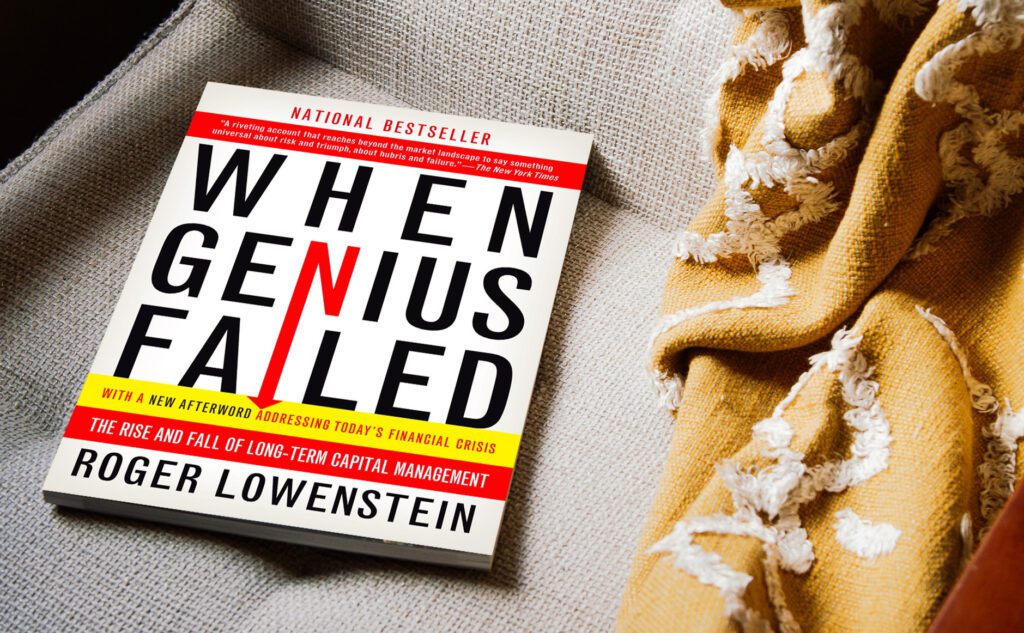
In this business classic—now with a new Afterword in which the author draws parallels to the recent financial crisis—Roger Lowenstein captures the gripping roller-coaster ride of Long-Term Capital Management. Drawing on confidential internal memos and interviews with dozens of key players, Lowenstein explains not just how the fund made and lost its money but also how the personalities of Long-Term’s partners, the arrogance of their mathematical certainties, and the culture of Wall Street itself contributed to both their rise and their fall.
4. The Art of Possibility: Transforming Professional and Personal Life (Rosamund Stone Zander & Benjamin Zander)

Presenting twelve breakthrough practices for bringing creativity into all human endeavours, The Art of Possibility is the dynamic product of an extraordinary partnership. The Art of Possibility combines Benjamin Zander’s experience as conductor of the Boston Philharmonic and his talent as a teacher and communicator with psychotherapist Rosamund Stone Zander’s genius for designing innovative paradigms for personal and professional fulfilment.
The authors’ harmoniously interwoven perspectives provide a deep sense of the powerful role that the notion of possibility can play in every aspect of life. Through uplifting stories, parables, and personal anecdotes, the Zanders invite us to become passionate communicators, leaders, and performers whose lives radiate possibility into the world
5. The 7 Habits Of Highly Effective People (Stephen Covey)
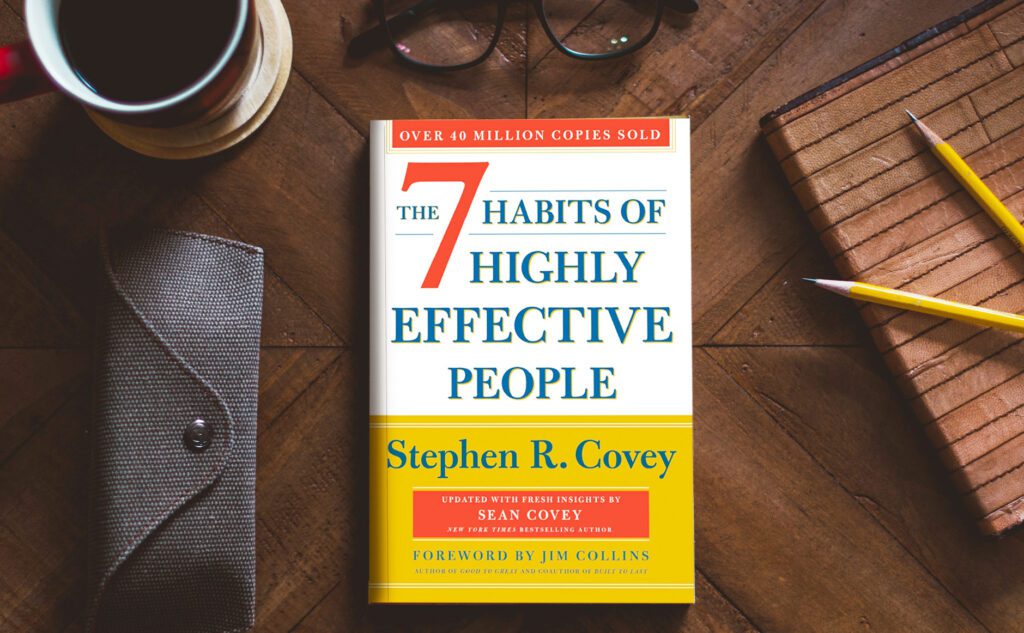
One of the most inspiring and impactful books ever written, The 7 Habits of Highly Effective People has captivated readers for nearly three decades. It has transformed the lives of presidents and CEOs, teachers and parents – millions of people of all ages and occupations.
With millions of copies sold and recognised as the #1 Most Influential Business Book of the Twentieth Century, the 7 habits have long been ingrained into the consciousness of effective people, and financial leaders like you can stand to learn from them;
- Be Proactive
- Begin with the End in Mind.
- Put First Things First
- Think Win/Win
- Seek First to Understand, Then to be Understood
- Synergise
- Sharpen the Saw
6. Winning (Jack and Suzy Welch)

A champion manager of people, Jack Welch shares the hard-earned wisdom of a storied career in what will become the ultimate business bible
With Winning, Jack Welch delivers a wide-ranging, in-depth, no-holds-barred management guidebook about the tough strategic, organizational, and personal challenges that face people at every stage of their careers. Loaded with candid personal anecdotes, hard-hitting advice, and invaluable dos and don’ts, Jack explains his theory of business, by laying out the four most important principles that form the foundation of his success.
Chapters include: How to Get Promoted, How to Think about Strategy, How to Write a Budget that Works, How to Work for a Jerk, How to Find Work-Life Balance and How to Start Something New. Enlivened by quotes from business leaders that Welch interviewed especially for the book, it’s a tour de force that reflects Welch’s mastery of execution, excellence and leadership.
7. Women CFO Stories (Nidhi Agarwal)

An avid reader and a financial professional, Nidhi couldn’t find a single book that covers stories of women Chief Financial Officers. As the world was stuck in the pandemic in 2020, she had a lot of free time during weekends, and that is when she thought about telling the stories of some of the incredible women across the globe who have made it to the top in the finance world. Feeling a sense of obligation to the women who have entrusted her with their stories, the stories inspire many women finance professionals to break the glass ceiling and aim to become CFOs one day!
While each person’s circumstances are different, and their story won’t be the same as anyone else’s, Nidhi hopes by reading this book, every woman can understand that Ambition, Humility, Profession, and Prosperous family life can all co-exist! This book’s net proceeds are donated to non-profit organisations in India working towards women’s education and empowerment.
8. The New CFO Financial Leadership Manual (Steven M. Bragg)

The comprehensive guide for CFOs who need an overview of leadership basics from strategies to management improvement tips
Filled with pragmatic insights and proactive strategies, The New CFO Financial Leadership Manual, Third Edition is destined to become your essential desktop companion. This thorough guidebook is filled with best practices to help you, as CFO, to improve efficiency, mitigate risks, and keep your organisation competitive.
- Includes updated information on the relationship of the CFO with the Treasurer, registration statements and Fedwire payments, acquisitions integration, legal types of acquisitions, and government regulations
- Contains control flowcharts for the main accounting cycles
- Provides new chapters on Investor Relations and Risk Management for Foreign Exchange and Interest Rates
- Features an itemized list of the key tasks every new CFO should complete when first entering the position, a checklist of 100 performance measures, and a detailed discussion of employee compensation plans
The reference CFOs and other financial managers can turn to for quick answers to questions they have as well as to help them plan their financial strategy, The New CFO Financial Leadership Manual, Third Edition is mandatory reading for every CFO wanting to play a strategic role in their organisation.
9. Dare to Lead (Brené Brown)
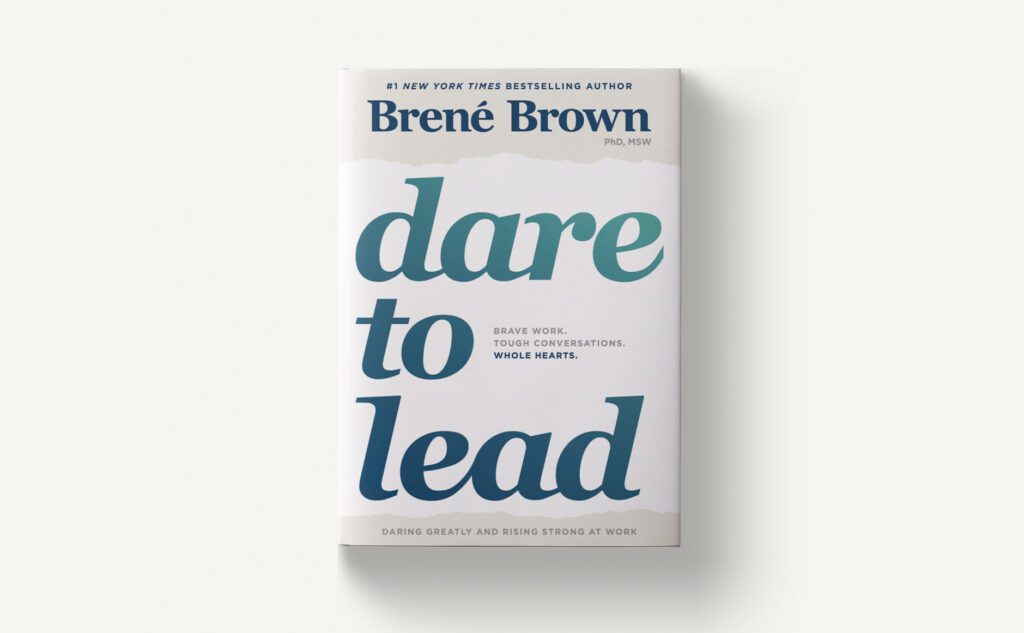
Leadership is not about titles, status and power over people. Leaders are people who hold themselves accountable for recognising the potential in people and ideas and developing that potential. This is a book for everyone who is ready to choose courage over comfort, make a difference and lead.
When we dare to lead, we don’t pretend to have the right answers; we stay curious and ask the right questions. We don’t see power as finite and hoard it; we know that power becomes infinite when we share it and work to align authority and accountability. We don’t avoid difficult conversations and situations; we lean into the vulnerability that’s necessary to do good work.
How do you cultivate braver, more daring leaders? And, how do you embed the value of courage in your culture?
Dare to Lead answers these questions and gives us actionable strategies and real examples from her new research-based, courage-building programme.
10. Reinventing the CFO (Jeremy Hope)
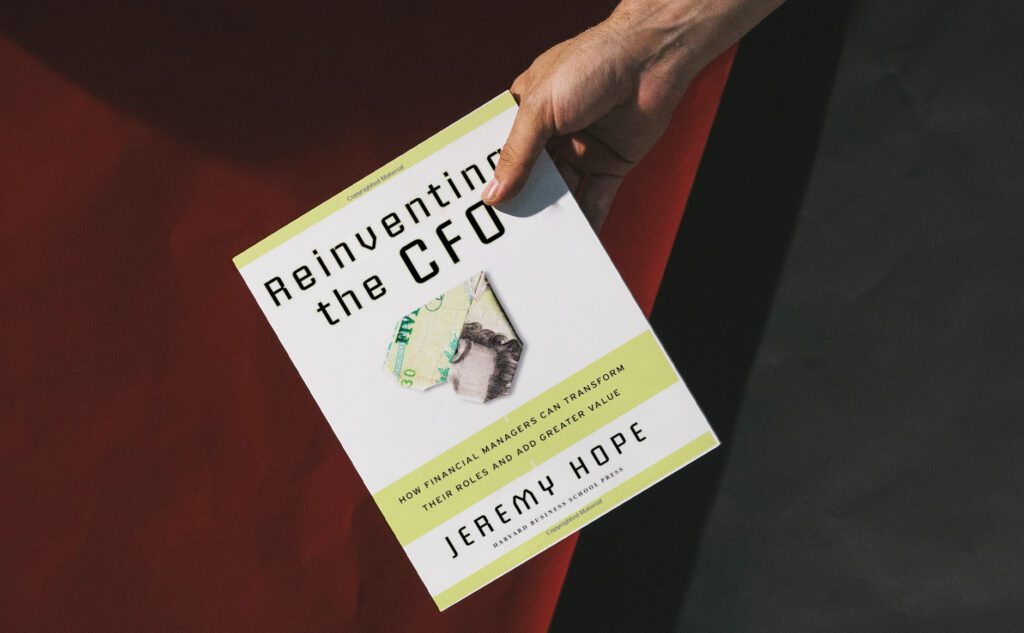
On the heels of a decade of scandals and the new pressures brought on by the Sarbanes-Oxley Act, corporations expect far more from their CFOs than simply managing the numbers. They expect decision-making support and performance insights that can improve bottom-line results. Unfortunately, the complexity and detail inherent in CFOs’ jobs keep them shackled to budgeting and transaction-processing systems that leave little time for value-adding activities.
Jeremy Hope says it’s time to redefine the role of CFOs in today’s organizations, liberating them from ineffective number-crunching responsibilities and enabling them to focus on helping managers improve performance. Grounded in extensive research, Reinventing the CFO outlines seven critical roles—from streamlining redundant processes to regulating risk to identifying a few key measures—that CFOs must take on in order to successfully transform the finance operation.
Challenging many of the finance field’s accepted practices and systems, this bold book revolutionises the role of financial managers and frees them to make smart, ethical, strategic decisions that add real value to the firm.
Bonus book! Leaders Eat Last (Simon Sinek)

How nice are we to offer a bonus book to our top 10 list? We could not leave this one out!
Author Simon Sinek is an optimist, a visionary thinker, and a leader of the cultural revolution of WHY. Determining a company’s WHY is crucial, but only the beginning. The next step is how do you get people on board with your WHY? How do you inspire deep trust and commitment to the company and one another? He cites the Marine Corps for having found a way to build a culture in which men and women are willing to risk their lives, because they know others would do the same for them. It’s not brainwashing; it’s actually based on the biology of how and when people are naturally at their best. If businesses could adopt this supportive mentality, employees would be more motivated to take bigger risks, because they’d know their colleagues and company would back them up, no matter what. Drawing on powerful and inspiring stories, Sinek shows how to sustain an organisation’s WHY while continually adding people to the mix.
We hope this list gives you options to choose a book to read which provides insight, guidelines, and actionable advice to build strong teams, maximise potential, and leave a lasting impression on organisations.

Work with us
We work with Europe’s leaders in finance to connect and recruit seasoned finance professionals.





